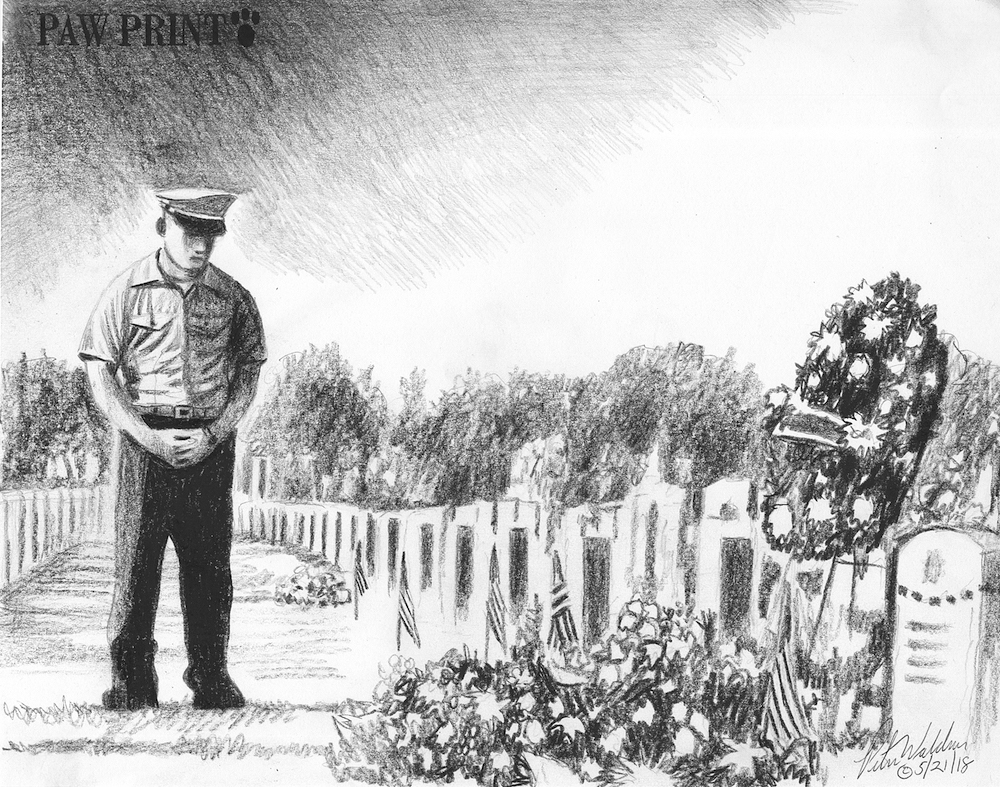Guest Column: Remembering Uncle Al — and many others

It started with flowers. We don’t know if it was a single bloom, a bunch of wildflowers picked at a roadside, a 19th-century floral arrangement called a “posy” or a bouquet from a formal garden. But it started with flowers.
It started with people. Historians are currently debating whether it started with Southern women placing flowers on the graves of those who fell for the Confederacy or with a group of newly freed African-Americans decorating the graves of Union dead in a makeshift cemetery at a former racetrack. But it started with people. Citizens. Not with some local ordinance, a directive from a state government or a federal law. It started with people.
It started in the immediate aftermath of America’s most costly war — our Civil War. The war that killed more Americans than any other, before or since.
But as the years passed on from Appomattox, a change occurred. Maybe a local boy from the South had died fighting for the Union, but his grave, back home, stood untended among those of his cousins. Maybe a Northern boy, buried far from home, lay in a row of his Southern counterparts. Or maybe the recognition of what all those dead had suffered, and the human capacity for compassion, won out over sectional hatred. We don’t know. But we do know that the practice of decorating war graves in the spring soon covered all graves, whether for Billy Yank or Johnny Reb.
And from there it was a small step to the other graves, from America’s other wars. Perhaps it started with a grave like Joseph Plum Martin’s, marked simply as “A soldier of the Revolution.” Or perhaps someone sought to honor a great uncle, killed fighting for Andy Jackson at New Orleans.
And Decoration Day began to honor the veterans of all America’s wars, no matter how they died for our country.
And so we honor not only those who fell to British bayonets at Breed’s Hill, or to British musket fire at Brandywine, but also those who quietly coughed out their lives on the British prison hulks in Graves End Bay and those who left bloody footprints in the snow at Valley Forge.
We remember not only those who met at a wall on Cemetery Ridge, but those who died in the hells of Andersonville and Elmira.
We think not only of those who died at San Juan and Kettle Hills, at the Meuse-Argonne and the Huertgen Forest, but those who died in the malaria-ridden swamps of Cuba and the Philippines and from a brutality beyond human understanding in Japanese prisoner of war camps.
So now, on Memorial Day, we remember them. And revere them. For what freedoms we have, we owe to them. The country we live in, we owe to them. The possibilities, and the bright future before us, we owe to them.
As your thoughts and prayers turn to our fallen, we at Post 861 ask you to remember another group, too often forgotten. The families of the fallen. The Gold Star families. Because our sacred dead weren’t from some “Star Wars” cloning facility. They had families: mothers, fathers, brothers, sisters, grandparents. People they loved, and who loved them in return.
A family that gave them not only love, but guidance and the values that have carried them to the Gates of Heaven. Families that have to bear the unbearable. The loss of their loved one.
My Nana Liberatore was a Gold Star Mother. She and Grandpa Liberatore raised seven children to adulthood. My mom, her five sisters and one son, Alphonse. My uncle Al.
Uncle Al grew up in Pennsylvania and Yonkers. He was especially close to my mom. But when Japan attacked Pearl Harbor, like most of his generation, Uncle Al joined up, in his case with the USMC, and shipped out to the Pacific. Nana, Grandpa, Mom and my aunts never saw him alive again. He was killed on Guam in 1944.
I never met my uncle Al. He died roughly two years before I was born. But he loomed large over my childhood. He was a palpable presence in our house. I knew about Uncle Al and Guam before a sentence containing the phrases “Pop,” “Utah Beach” and “D-Day” made any sense to me.
Because Uncle Al never really left his family, or my cousins, or me. They remembered him with pride. In what he did. In how he died. And what he died for. But they remembered him with a deep, deep, and abiding sense of loss. The loss of what he was, and the loss of what he might have become. They mourned him all their lives.
Because for Gold Star families, every day is Memorial Day.
So when you contemplate those seemingly endless lines of men — some very young, some not so young, but none of whom will ever age again — pray for them. Honor their sacrifice. Because they have paid the ultimate price. For us.
And pray, too, for those families with the red-bordered white flag with the gold star in its center. For their loss is our loss. And their pride is our pride.
The author is commander of American Legion Post 861 in Mattituck.
Cartoon credit: Peter Waldner









